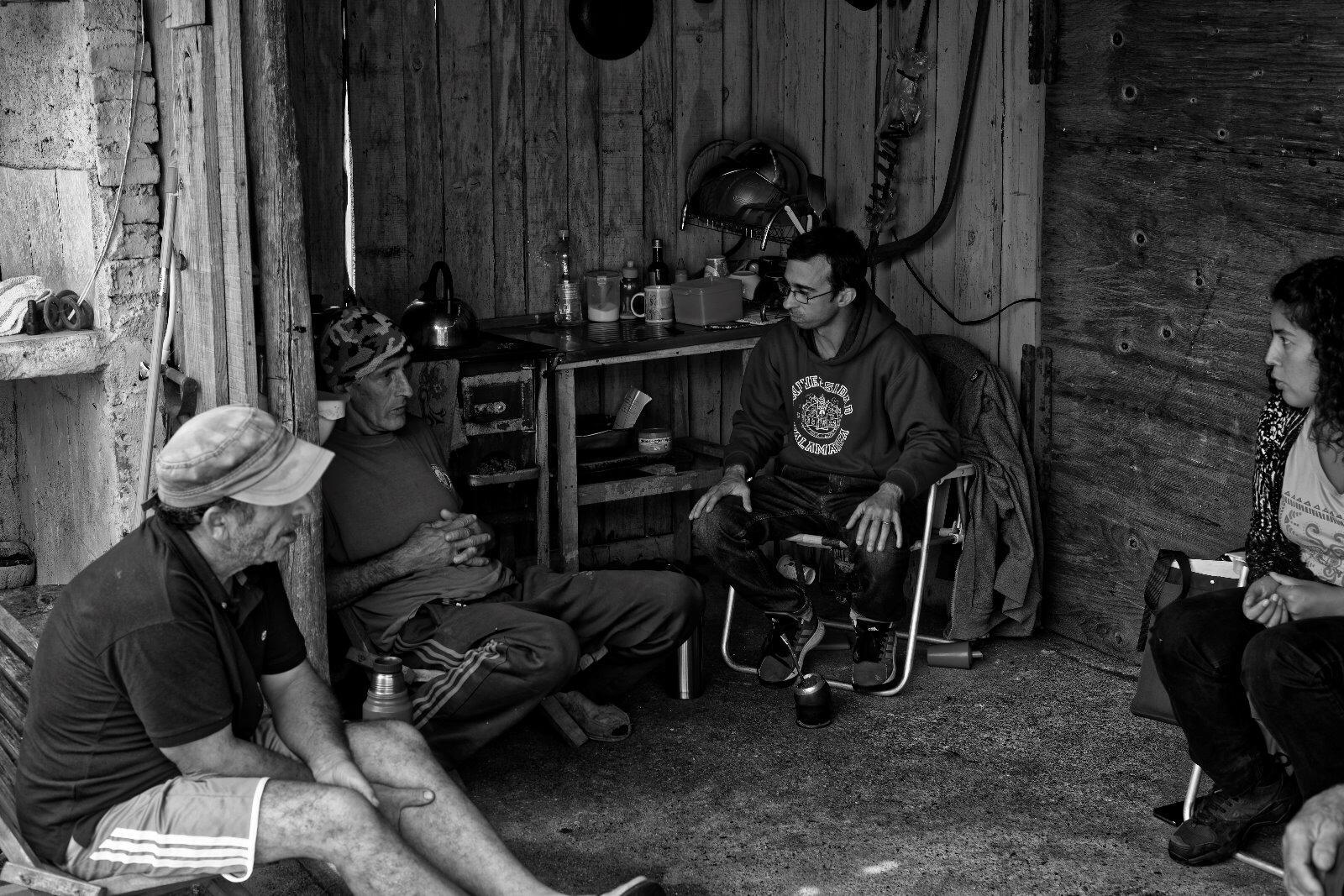Adaptive governance
It is the institutional, political and social arrangement which allows the implementation of strategies, such as adaptive management. It is the product of bottom-up processes mediated by informal structures that emerge in response to the failures of bureaucratic institutional structures dominated by top-down processes.


Foto por Hugo Inda
Cross-border pollution, deforestation and deterioration of ecosystems at planetary level are some of the critical problems of today. They occur in a context of climate change that manifests itself through extreme events of greater intensity, frequency and duration. The result triggers or aggravates conflicts over access to ecosystem services and leads to institutional instability.
Human institutions are challenged by this set of unprecedented problems because of their scale, their interconnection and their simultaneous occurrence. The traditional division between knowledge areas, the institutional rigidity, the separation between disciplinary fields, and between these and the decision-making processes, do not allow an efficient and flexible management of changing challenges.
Governance is the management defined by formal rules (constitution and laws) and informal ones (traditions, habits and customs). It is about overcoming the execution exclusively from the State and creating a collaborative and negotiated management network.
Adaptive governance provides the context for the institutional, political and social arrangement which allows the implementation of strategies such as adaptive management or scenario building. It constitutes a social and political framework that defines the non-linear, discontinuous or turbulent management of the dynamics of social-ecological systems. The participation of multiple actors gives the process legitimacy and allows the integration of different kinds of knowledge, across different time and geographic scales.
To be effective, governance must match factual information about the status of ecosystems and human activities that depend on the services they provide. It must also incorporate uncertainties and values that are at stake. It is necessary to incorporate into the decision-making processes the type and degree of uncertainty, as well as the nature and extent of scientific ignorance and disagreement.
Finally, adaptive governance includes the shaping capacity to incorporate past and novel processes and visions. When referring to a learning process that exceeds the command and control paradigm, the error is no longer a failure and, on the contrary, it constitutes a learning opportunity that can enrich the decision-making processes.
Key refernces →
Allen, C.R. y Garmestani, A.S., eds. (2015). Adaptive Management of Social-Ecological Systems. Springer Science+Business Media, Dordrecht.
Biggs, R., Schlüter, M., Schoon, M.L., eds. (2015). Principles for building resilience. Sustaining ecosystem services in social-ecological systems. Cambridge: Cambridge University Press.
Dietz, T., Ostrom, E., Stern, P. (2003). The Struggle to Govern the Commons. Science, New Series, Vol. 302, No. 5652, pp. 1907-1912
Gunderson L. (2015). Lessons from Adaptive Management: Obstacles and Outcomes. In: Adaptive Management of Social-Ecological Systems. Allen, C. y Garmestani, A., (eds.). Springer Science+Business Media, Dordrecht. pp: 27-38
Other recommended readings →
Birgé, H. E., Allen, C. R., Garmestani, A. S., Pope, K. L. (2016). Adaptive management for ecosystem services. Journal of Environmental Management, 183, 343-352.
Bustos, E. (2016). Procesos de toma de decisiones y adaptación al cambio climático. In: Ryan, D. and Gorfinkel, D., (coord.). Toma de decisiones y cambio climático: acercando la ciencia y la política en América Latina y el Caribe. UNESCO
Folke, C., Hahn, T., Olsson, P., Norberg, J. (2005). Adaptive governance of social ecological systems. Annual Review of Environment and Resources, 30, 441–473.
Gunderson, L.H., y Holling, C.S., eds. (2002). Panarchy: Understanding transformations in human and natural systems. Washington, D.C., Island Press.
Holling, C. S. (1978). Adaptive Environmental Assessment and Management. Wiley, London. Reprinted by Blackburn Press in 2005.
Mazzeo, N., Zurbriggen, C., Trimble, M., Bianchi, P., Gadino, I., Steffen, M. (2017). Sostenibilidad ambiental del Uruguay: aportes desde el pensamiento resiliente. Instituto Sudamericano para Estudios sobre Resiliencia y Sostenibilidad (SARAS). Bella Vista, Maldonado, Uruguay
Mazzeo, N., Steffen, M., Bianchi, P. (2017). Cambio climático, procesos de análisis y toma de decisión. Alianza Clima y Desarrollo (CDKN).
Ostrom, E. (2010). Polycentric systems for coping with collective action and global environmental change. Global Environmental Change, 20, 550–557. doi:10.1016/j.gloenvcha.2010.07.004.
Peters, G. (2014). Is governance for everybody? Policy and Society, 33(4), 301-306
Ruhl, J. B. (2016). Adaptive management of ecosystem services across different land use. Journal of Environmental Management, 183, 418-423.
Stankey, G. H., Clark, R. N., Bormann, B. T. (2005). Adaptive management of natural resources: theory, concepts, and management institutions. Gen. Tech. Rep. PNW-GTR-654. Portland, OR: U.S. Department of Agriculture, Forest Service, Pacific Northwest Research Station.
Walters, C. J. (1986). Adaptive Management of Renewable Resources. New York, McGraw Hill.
